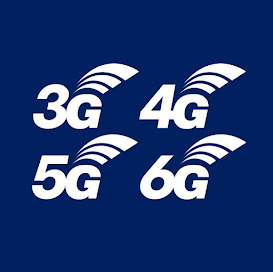
I suppose its pretty pointless to talk about 5G because LTE also known as 3.9G is not yet deployed. Nevertheless, I
saw various discussions about 5G in various forums recently.
Just to recap,
LTE or 3.9G will take
DL speeds upto 300Mbps and UL to around 75Mbps.
LTE-Advanced also known as 4G will take the speeds upto 1Gbps in slow mobility scenario and and in high mobility the rates could be upto 100Mbps. So what about 5G?
Well honestly its too difficult to forsee and speculate the rates 5G would provide. In fact 5G may be a completely different paradigm and use another yardstick to measure technological progress. Infact the ITU has moved away from the 'generation' concept and even though its accepted that LTE-A is 4G, its not referred to as 4G by ITU. ITU does not mention 4G anywhere in its next generation acronyms. The term used is
IMT-Advanced.
So lets speculate what 5G could be.
I think 5G will be more about reliability and convergence of technologies. Imagine a phone with upto 8 MIMO's and simultaneously its using dfifferent technologies. So a user is connected to the web using multiple technologies and at any instant of time he is getting multiple streams from different sources. When one of these sources fail then the other technology can simply take over and provide the connection. In a simple case if we map this to today's technology then we would have one antenna connected to HSPA, one to WiMAX, one to WiFi, one to UWB, etc., etc.
Hopefully IMS (or another similar technology) will become reality much earlier but even if it doesnt then hopefully by the time 5G will arrive its already operational. Mutiple devices can be connected by the same contact and presence rules can control them. It can help with other services like Messaging and PoC.
Television streaming should become completely seamless and it should be possible to provide 100's of channels without any spectrum limitations.
The cell sizes can become extremely large and cells can have say 80% overlap but there would be no interference. This would even give opportunity to have Femtocell like devices that can provide coverage for say upto a kilometre and it would cause no interference. This should also help get rid of cell-edge rate problem and can help avoid congestion, capacity crunch, etc.
Cloud computing can hit the mobile technology as well and the phones can do amazing things withouth much of the power required. A bit like the
'sixth-sense' technology case where the computation power is in the cloud and the phone is just a device to connect to the web. Infact the cloud concept could be extended where different gadgets can become part of the cloud so maybe your refrigerator can be processing your data if you are near it or maybe you television is if you are near it. The end user should not be aware and shouldnt care as long as his job is getting done.
I suppose when these many features will be available in a technology then the applications can do amazing stuff, only creative developers will be required to come up with new and amazing innvovative ideas.
These are just ideas, please feel free to add yours.
Ps: And ofcourse we would need support to Voice and SMS ;-)















